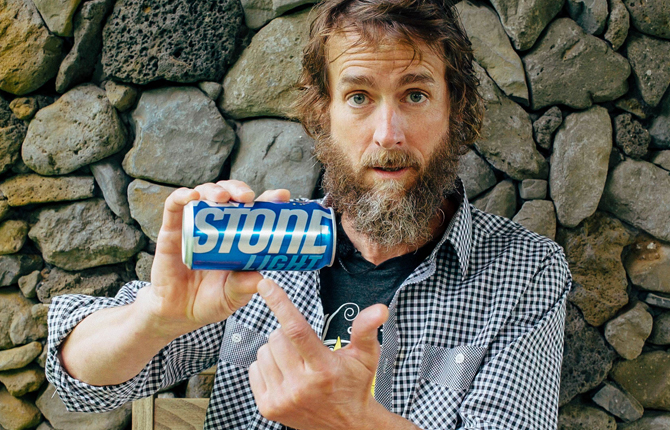
The Stone-Molson Coors trademark infringement legal saga continues to play out in a series of post-trial motions.
This week, each side has filed motions, with Stone seeking additional damages on top of its $56 million jury award, and Molson Coors attempting to block Stone’s request for a preliminary injunction earlier this month.
The moves follow a jury siding with Stone in its trademark case against Molson Coors over its 2017 rebrand of Keystone Light, which separated the words “Key” and “Stone” on cans and packaging. However, jurors said Molson Coors did not willfully infringe upon Stone’s trademark.
On Monday, Stone’s attorney, J. Noah Hagey, filed a motion asking the court to order Molson Coors to “disgorge $116 million in profits attributable to the infringing ‘Own the Stone’ campaign,” as well as “award treble damages in the amount of $168 million” in addition to the $56 million jury award and an undisclosed amount of attorneys’ fees.
Hagey called the harm caused to Stone “very real,” adding that the jury award “while more than justified, does not adequately compensate Stone for the full extent of the injury it has suffered.” He continued that the verdict alone would allow Molson Coors “to enjoy hundreds of millions of dollars of benefit from a five-year campaign of infringement.” At trial, Stone sought a $216 million jury verdict.
“The rebrand caused a fundamental change in the trajectory of Stone’s business from which it has not recovered today and will likely never recover,” Hagey wrote. “Meanwhile, Stone’s valuation plummeted following the rebrand from $830 million to less than $475 million.
“The quantum of this harm far exceeds $168 million,” he continued. “The Court should award treble damages of $168 million as authorized by Section 1117(a) to fully compensate Stone for the harm caused by MillerCoors’s knowing infringement.”
During the trial, Stone’s attorneys argued that Molson Coors’ Keystone Light rebrand confused consumers and led to a 20% decline – or $174 million drop – in Stone’s business.
According to Stone’s filing, Molson Coors has sold more than 4 billion cans of the rebranded Keystone Light beer since April 2017, generating $1.7 billion in revenue and $764 million in profits.

Molson Coors Files Response to Stone’s Ask for Permanent Injunction
Also on Monday, Daniel R. Lombard, an attorney for Molson Coors, filed a response to Stone’s request for a permanent injunction that would force Molson Coors to “immediately cease producing and distributing the infringing [Keystone Light] packaging,” and “withdraw all infringing packaging and advertising from the marketplace.”
Lombard called Stone’s ask for a permanent injunction “overly broad and unenforceable” and “not warranted for several reasons,” including:
- Molson Coors has already stopped TV, radio and social media advertising and marketing communications using the Keystone Light rebranded packaging. The company is also “working on new primary and secondary packaging that is anticipated to be released in September 2022.” The company added that packages in the market “prominently display that the product is ‘Keystone Light’ made by ‘Coors Brewing Company.’”
- Lombard argues that Stone is unable to show “it has suffered, or will suffer, irreparable harm.” He added that the trial failed to present a consumer who “actually purchased Keystone Light thinking that it was brewed by [Stone].”
- Lombard also argues that the $56 million jury verdict is “an adequate remedy at law.”
- Lombard adds that “the balance of harms” favors Molson Coors since the company “will face severe, near-term consequences if forced to stop selling Keystone before it is able to launch revised packaging in just a few months.”
- Finally, Lombard argues that any injunction should not start until Molson Coors can transition to new packaging without removing Keystone Light products from store shelves, which it says would take several months.
For those reasons, Lombard concluded that the court should deny Stone’s request for a permanent injunction, or at least present a more limited injunction that applies only to packaging with the stand-alone word “Stone” on cans and with the split in the word “Keystone.” He adds that any injunction should still allow Molson Coors to “use any images, words, phrases, and/or word styles that existed on or in Keystone’s packaging, cans, other products, advertising or marketing materials prior to April 2017,” and sell through existing inventory by September 1, 2022, as it transitions to new packaging.
